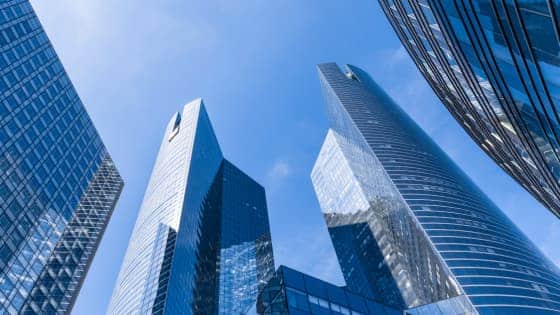We’ve written in the past about a brewing local real estate trend that intersects with topics we write about occasionally here.
These all fall loosely under the “Future of Work” umbrella. For example, remote work, hybrid work, distributed work. Plus what we call “remote tech” – the growing software stack designed for a world where people conduct more business meetings online than they do in real life.
That trend is office-to-residential conversions. And we use the word “trend” loosely because it is still unclear if this is a trend or merely something that is getting tossed around as one possible solution to a very real challenge. And that is what to do about the emptying out of big city downtowns as erstwhile office workers by and large dig in their heels and refuse to go back to the office. Jamie Diamond’s protestations notwithstanding.
Boston Steps Up
We wrote about this topic back in May and my colleague Mike Boland and I also kicked it around on Episode 21 of Localogy’s This Week in Local podcast, which we co-host.
What got us thinking about this again was this recent Fortune headline.
“Housing market shortage is so acute and the office glut is so big that Boston will offer 75% tax breaks on office-to-residential conversions”.
One thing that is clear is that the situation with commercial real estate, downtown office space in particular, is very real. And it raises real concerns that we are facing a commercial real estate crash that could ripple throughout the US economy.
A quick look at office vacancy rates in large US cities tells an alarming tale.
According to the Commercial Edge July National Office Report, the national office vacancy rate is 17.1%. Vacancy rates range from a modest 12.9% in Philadelphia to above 20% in Denver. According to the Commercial Edge report at least, Boston is among the better-off cities, with a vacancy rate under 11%. Still, the city of Boston must see things very differently if it is offering such aggressive incentives for conversion.
Blame Remote Work
The shift to remote, hybrid, and distributed work, accelerated by the pandemic, is the most widely cited reason for the spike in office vacancy. And it is also cited as a factor in the widely perceived deterioration of the general environment in downtowns from San Francisco to Chicago.
The absence of office workers from trains, offices, sidewalks, etc. has left many downtowns feeling abandoned (and often less safe).
It has also decimated the small businesses that depend on office workers to buy sandwiches and coffee, get their dry cleaning done, and so on.
Meanwhile, the notion of office-to-residential conversion has persisted, with cities like Boston ramping up incentives, as the above headline reveals.
Too Much Office Space
The reason for its persistence is clear. By any measure, there is too much office space and not enough residential inventory. And those who own office buildings are eager for a solution. Especially if they are facing debt maturities while generating little or no income from their properties.
However, office-to-residential conversions are no layup. Back in May, we noted that the two building types are designed for very different purposes.
So repurposing these buildings is difficult and expensive. Still, some architects and builders argue that conversions may have an edge on cost over new construction. For example, CBRE Group estimates that the cost of converting one office building to apartments in Alexandria, VA, would cost $213 per square foot, compared to $275 per square foot if it were built new.
Shifting Attitudes
There appears to be a shift in attitudes on the feasibility of these conversions. So will we begin to see more of these?
And what does this mean for the future of work? Even if conversions increase, CEOs will still have plenty of office space to bring reluctant office workers back to. And those creating the “remote tech” stack will still have plenty of hybrid workplaces to sell their solutions to. Perhaps a few commercial real estate developers, however, will be able to dodge bankruptcy.




